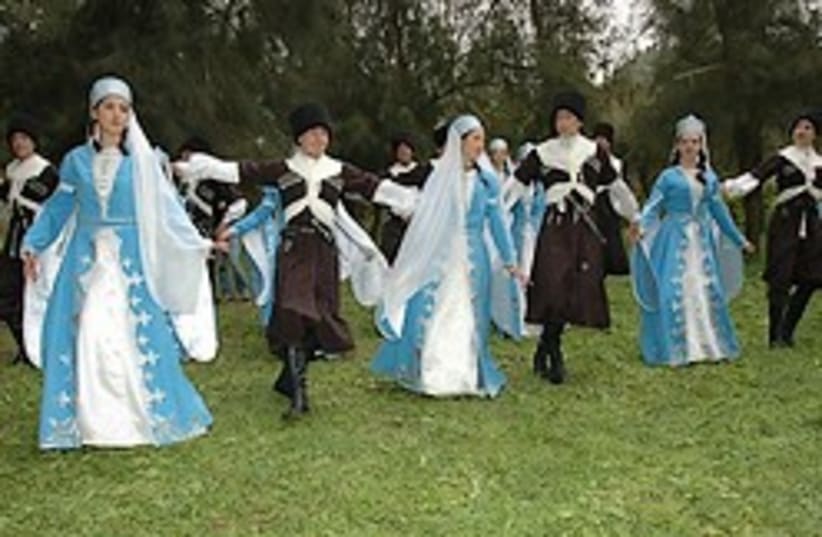Tu Be'av, the traditional Jewish holiday of love, is the holiday on which young women would go out dressed in white to dance in the vineyards by the light of the full moon. Meanwhile, the young men would be waiting for them, and each would take his love. Merom Hagalil, with its abundance of vineyards, breathtaking views and romantic atmosphere, is a perfect place to celebrate the holiday.
The festival opens on August 4 with a special performance by Yehudit Ravitz in honor of the holiday of love, which will take place at the Biriya Castle at 9 p.m. After the performance, there will be a nighttime walking tour - "wine, love, couples and mysticism in the moonlit views of the Galilee." The walk will leave from Biriya Castle to the sound of love songs from around the world, and it will include tastings of fine Israeli wines and a meeting with a mystic, Nechama Merav from Moshav Amirim.
Merav has been reading tarot cards for 22 years and says that it is "a language like any other language… there are 78 letters that connect to words and sentences."
She says that she uses her skills as a mystic to help treat people for a variety of problems. "Cards show things," she says.
The next day of the festival will feature a performance by Evyatar Banai at the Dalton Winery, including songs from his new album, The Night Lights Up Like the Day.
On August 6, festival attendees are invited to a Circassian wedding in the village of Reihaniya. The village band will be hosting another band from Jordan, and the night promises to be full of music, dance, celebration and Circassian folklore - the wedding begins with the bride being "kidnapped" by her horseback groom.
During the festival there will be events at various tourist sites throughout the region at all hours of the day and night. Wine is one of the main attractions of the region, and the various vineyards and wineries in Merom Hagalil will be conducting tours and tastings.
Of the many wineries in the region, the Rimon Winery is certainly one of the most unusual. According to the owners, it is the only winery in the world to make pomegranate wine. The owners of the vineyard, an agricultural family from a nearby moshav, say that its wine also has health benefits, because all of the beneficial properties of the pomegranate are concentrated during the distillation process.
Festival attendees will be able to take advantage of their beautiful surroundings through horse, ATV and jeep tours. The outings will have a variety of focuses, from visits to the tombs of ancient rabbis to meetings with plant healers.
Orit Baruch is one such healer; she lives and runs a clinic and store, Olive, on Moshav Amirim. She found her calling after a sweat-lodge ceremony with a native woman in Alberta, Canada. She says that she uses plants in both their physical sense and their soul in order to heal a variety of ailments. All of the plants that she uses, she collects herself. "Everything that you buy in stores, even salt, is already lost," she says.
Meanwhile, Carmeli's Restaurant is owned by one of the founders of Moshav Amirim. Yehuda Carmeli relates that the first settlers arrived at Amirim following a conference of vegetarians in Tel Aviv. With a lack of arable land, the settlers in Amirim had a difficult time establishing themselves and making a living - but they simply couldn't tear themselves away from their beautiful location, with views of the Kinneret from every spot. Thus, they turned to tourism, and today the moshav is full of restaurants, guest houses and artists. Many of the restaurants and lodgings in Merom Hagalil will have special deals during the festival.
Carmeli's was the first restaurant in the moshav, and he says that he doesn't have a menu because he makes all of his food fresh every day. He cooks healthy, vegetarian, home-style food - and says that his humous is particularly popular.
Amirim will be open to visitors throughout the festival, but will be hosting a special event to conclude the festival and welcome Shabbat on Friday afternoon, August 8, featuring Kabbalat Shabbat and a discussion of the week's Torah portion.
| More about: | Yehudit Ravitz, Eviatar Banai, Rehaniya, Tel Aviv |
